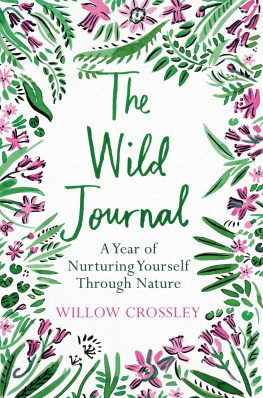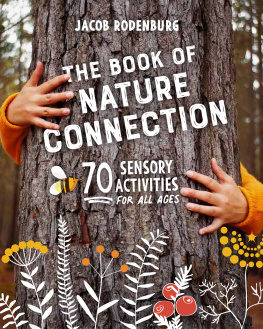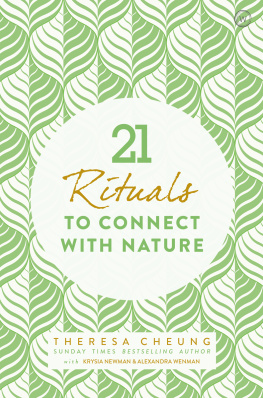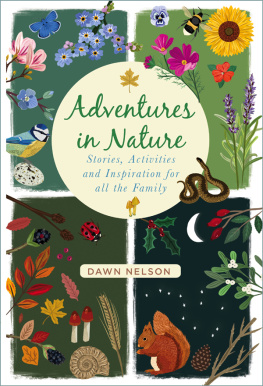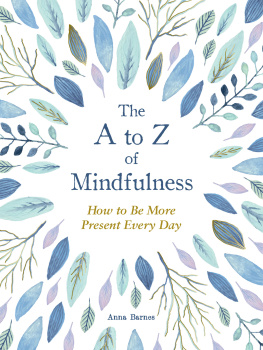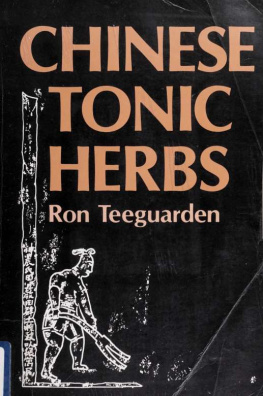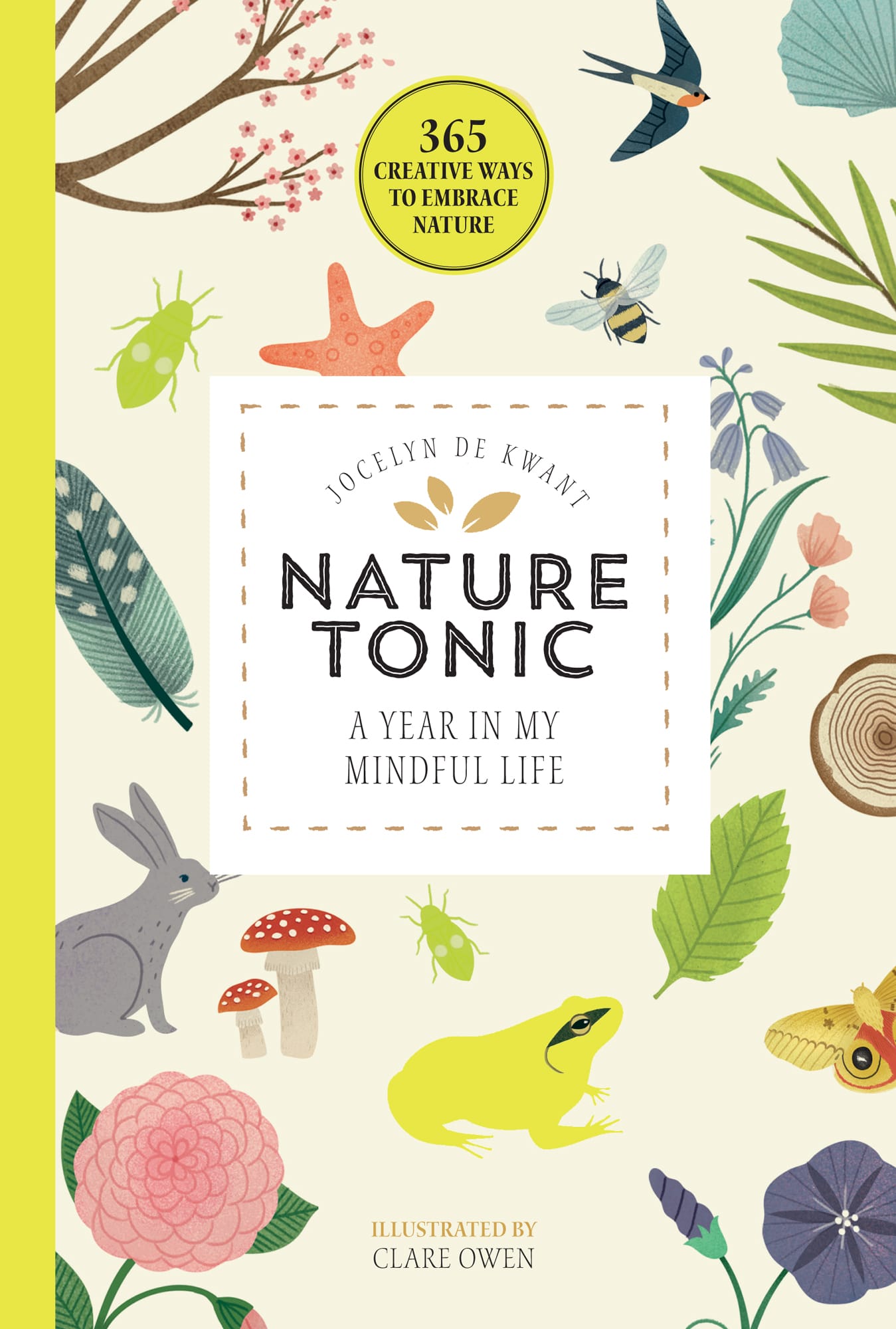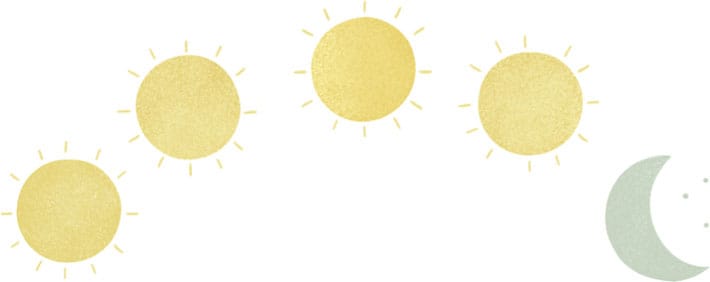Contents
Guide
NATURE TONIC
A YEAR IN MY MINDFUL LIFE
JOCELYN DE KWANT
ILLUSTRATED BY
CLARE OWEN

INTRODUCTION
A few years ago I was a bit down. It was vacation time and the sun was shining, but there were a number of unpleasant things going on in my life and I was angry with someone. In that condition, I was ruminating in a lavish Spanish garden, a garden full of flowers, although I didnt really see them. They were just there. Then my eyes locked on a wilted bloom on an ornamental flowering plant. When I looked a little longer, I saw more wilted flowers. And I also saw buds that could burst any moment, and a wilted flower that had already become some kind of black fruit, carrying the seeds for the future generation of that plant. It struck me that all stages of life were living happily together on one bush. Without thinking much about it, I picked a few flowers and arranged them in the right order on the floor from bud to fruit. That looked so nice that I took a picture of it. In the meantime, this whole procedure had made me so happy, so light and cheerful, that I had already forgotten how bleak I had felt when I started it.

That day in the Spanish garden I realized that I missed nature deeply. I had been such a nature lover as a child, going on early morning excursions to hear birds singing and spending hours identifying butterflies and plants. What had happened? Like most of us, I joined the fast city life, reaching for the stars, spending my days among bricks and stones, working frantically from my desk. I had forgotten the feeling nature gave me.
For a long time, most of us have probably thought that nature is nice for recreation but no more important than that. But in recent years scientific research has shown that nature can alleviate a lot of modern problems. If were cut off from nature, it has a radical impact on our nervous system and higher brain functioning. Depression, anxiety, attention deficit hyperactivity disorder (ADHD), obesitythese are all linked to nature deficit disorder, an expression coined by Richard Louv, author of Last Child in the Woods. In another important book on the subject, Nature Fix, Florence Williams writes about a Finnish study that showed that spending five hours in nature every month could prevent depression. But even just 15 to 45 minutes in a city park were found to improve mood and vitality. The more I read about it, the more it convinced me that my Spanish garden experience wasnt special at all; its just what happens when you interact with nature. It lowers your stress levels and improves well-being, creativity, and life satisfaction.

After experiencing a burnout 15 years ago, I have dedicated my work as a journalist to writing about things that make you feel better. Ive tried everything and spoken to many experts in the field. Ive studied mindfulness; Ive simplified my life; Ive investigated how creativity can help. And all of that was beneficial. However, discovering the recent research about the positive impact of natureand there is a lotit feels as if Ive found the holy grail of well-being. Its really simple. If we want to stay sane in this world, if we want to refrain from being overwhelmed, weve got to return to nature. But what can we do, apart from the occasional visit to the woods?
For this book, Ive made 365 prompts for a nature moment a day. Prompts to meditate, to look, to learn, or to do. Ive combined mindfulness, creativity, botanical curiosity, and bush craft. Follow the pace of the book and pick a different one every day, or just pick a couple that work for you and repeat them as often as you want. It doesnt matter, as long as you do something daily. Some prompts end with the suggestion of drawing something; but dont worry, its not about the artistic quality. Drawing is just meant as a tool to encourage you to look closer; you could also take a photograph.
That day in the Spanish garden was the start of a new journey. I can honestly say it has changed my life for the better.
A NATURAL RHYTHM
Watches and planners: we cant live without them. Of course, they are useful, but slowly theyve started to dominate our lives. Were always rushing from one place to the next; we treat every day, every hour, as if its the same, trying to force ourselves into a mold that isnt natural for us. We sometimes forget that things have not always been this way. The clock is a human inventionand we certainly didnt evolve with a phone attached to our hand.

Not so long ago, measured time played a far more modest role in our lives. We were more dependent on nature and subsequently more in sync with the seasons and the natural course of the day. Maybe the first and most crucial step in reconnecting with nature is to get back in touch with the natural rhythm of the world. As the researcher Yoshifumi Miyazaki points out: Throughout our evolution, weve spent 99.9 percent of the time in nature. Our physiology is still adapted to it. During everyday life, a feeling of comfort can be achieved if our rhythms are synchronized with those of the environment.
Dont worry, this is not about throwing away your planner and ditching your watch. This is about realizing that we could all benefit from living life at a more natural pace. This chapter is about noticing the natural rhythm of the world, seeing how the day changes, how the seasons change, how nature adapts to the earths orbit around the sun; because we could definitely learn a thing or two from nature when it comes to adapting to our circumstances. There is a time to bloom, to grow, to hibernate; there is a time to harvest. We can slow down and accept that every moment has its own quality.
Arrange a day without any commitments and let yourself become one with the natural flow of the day. Try not to look at the clock. Sleep when you feel tired; eat when you feel hungry. Try to spend time outside. Make little notes during the day about how this feels.
The sound of birds singing as loudly as they can just before sunrise is known as the dawn chorus. Due to the lack of wind in those predawn hours, female birds can better identify the different males, because each has a unique song. The male birds might also be trying to prove they are the toughest by being able to sing so energetically so early in the morning. If you get the chance, wake up with the dawn chorus.


